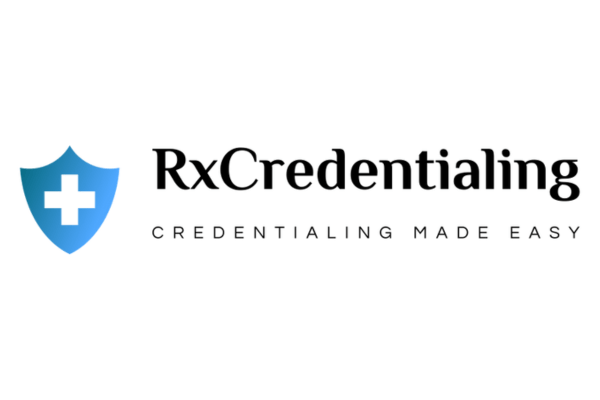Introduction
Significance of Refund and Recoupment in Medical Billing
In the realm of medical billing, understanding the significance of refund and recoupment is crucial for maintaining financial health.
While both involve the return of funds, they operate in distinct contexts, necessitating a clear understanding to navigate the intricate landscape of healthcare revenue management effectively.
The Impact of Refund and Recoupment on Healthcare Revenue
Refunds and recoupments wield considerable influence on the revenue streams of healthcare providers.
Mismanagement or ignorance of these processes can lead to financial strain, affecting the sustainability of medical practices.
Thus, grasping their implications is paramount for maintaining financial stability and operational efficiency.
Importance of Distinguishing Between Refund and Recoupment
Distinguishing between refund and recoupment is fundamental for healthcare financial management.
While refunds pertain to reimbursements to patients or insurers, recoupments involve the recovery of overpaid funds from healthcare providers.
Clear differentiation ensures adherence to regulatory requirements and minimizes legal liabilities.
What is Recoupment in Medical Billing?
Overview of Recoupment in Healthcare
Recoupment in medical billing denotes the process by which payers reclaim excess payments made to healthcare providers.
It serves as a mechanism to rectify billing discrepancies and prevent financial losses resulting from overpayments.
Causes and Triggers of Recoupment
Recoupment can be triggered by various factors, including billing errors, coding inaccuracies, and policy discrepancies.
These discrepancies prompt payers to initiate recoupment requests to reconcile payment discrepancies and ensure fiscal accountability.
Legal Ramifications and Challenges Faced by Healthcare Practitioners
Healthcare practitioners often encounter legal challenges associated with recoupment, including compliance with regulatory guidelines and navigating appeal processes.
Failure to address recoupment requests promptly can lead to legal repercussions, underscoring the importance of proactive management strategies.
Understanding Overpayments
Definition and Concept of Overpayment
Overpayments in medical billing refer to instances where payers remit funds exceeding the agreed-upon reimbursement for healthcare services rendered.
These overpayments pose financial challenges and necessitate corrective measures to prevent revenue leakage.
Implications of Overpayments in Medical Billing
Overpayments entail significant implications for healthcare practices, including financial strain, regulatory scrutiny, and reputational risks.
Addressing overpayment issues promptly is essential to safeguard the financial integrity and reputation of medical institutions.
Legal Framework and Patient Rights Regarding Overpayments
Patients have rights regarding overpayments, including the right to reimbursement for excess payments and protection against unjust recoupment practices.
Understanding the legal framework surrounding overpayments is critical for ensuring patient satisfaction and compliance with regulatory requirements.
Common Reasons Leading to Recoupment
Billing Errors and Their Impact on Recoupment
Billing errors, such as coding inaccuracies and documentation discrepancies, are primary contributors to recoupment requests.
Identifying and rectifying these errors is essential to mitigate recoupment risks and maintain financial stability.
Policy Discrepancies and Unusual Practices
Policy discrepancies between payers and healthcare providers can result in recoupment requests.
Adhering to payer guidelines and implementing standardized practices can minimize the occurrence of recoupment due to policy discrepancies.
Documentation Errors and Their Contribution to Recoupment
Incomplete or inaccurate documentation can trigger recoupment requests, leading to financial losses and legal complications.
Improving documentation practices and ensuring compliance with regulatory standards are essential for mitigating recoupment risks.
How the Recoupment Process Works
Initiation of Recoupment Requests by Payers
Payers initiate recoupment requests upon identifying payment discrepancies or billing errors.
These requests typically involve a detailed review of billing records and documentation to ascertain the validity of the recoupment claim.
Steps Involved in the Recoupment Process
The recoupment process entails several steps, including notification of the recoupment request, review of billing documentation, and appeals process.
Healthcare providers must adhere to prescribed timelines and procedures to effectively navigate the recoupment process.
Legal Procedures and Appeals in Recoupment Cases
In cases of disputed recoupment requests, healthcare providers have the option to appeal through legal channels.
Understanding the appeals process and engaging legal counsel can enhance the likelihood of favorable outcomes in recoupment disputes.
Dealing With Patients Refunds
Causes and Scenarios Requiring Patient Refunds
Patient refunds may be necessitated by billing errors, overpayments, or insurance discrepancies.
Healthcare providers must communicate transparently with patients and adhere to regulatory guidelines when issuing refunds.
Strategies for Effective Patient Refund Management
Implementing efficient refund management processes, including timely communication and accurate accounting practices, is crucial for maintaining patient satisfaction and compliance with regulatory requirements.
Legal and Ethical Considerations in Patient Refunds
Ensuring compliance with legal and ethical standards is essential when handling patient refunds.
Healthcare providers must prioritize transparency, fairness, and patient confidentiality throughout the refund process.
Precautions to Reduce Refunds and Recoupment Requests
Best Practices for Minimizing Billing Errors
Implementing robust billing protocols, conducting regular audits, and investing in staff training can minimize the occurrence of billing errors and reduce the risk of recoupment requests.
Importance of Staff Training and Protocol Updates
Ongoing staff training and protocol updates are essential for ensuring compliance with evolving regulatory requirements and industry best practices, thereby reducing the likelihood of refunds and recoupment requests.
Role of Outsourcing in Mitigating Refund and Recoupment Risks
Outsourcing medical billing services to reputable providers can streamline revenue management processes, minimize billing errors, and reduce the frequency of recoupment requests, ultimately enhancing operational efficiency and financial sustainability.
Conclusion
Advantages of Outsourcing Medical Billing Services
Outsourcing medical billing services offers numerous advantages, including cost savings, expertise access, and enhanced compliance, making it a viable option for healthcare practices seeking to optimize revenue management processes.
Recap of the Key Differences Between Refund and Recoupment
Distinguishing between refund and recoupment is crucial for healthcare providers to navigate the complexities of medical billing effectively, ensuring compliance with regulatory requirements and minimizing financial risks.
Future Perspectives on Refund and Recoupment Management in Healthcare
As healthcare continues to evolve, proactive management of refund and recoupment processes will remain paramount.
Embracing technological advancements, investing in staff training, and adopting best practices will be essential for mitigating risks and optimizing revenue management in the future.
In conclusion, understanding the nuances between refund and recoupment is crucial for healthcare practices to navigate the complexities of medical billing effectively.
By implementing best practices, staying updated with regulations, and considering outsourcing options, healthcare providers can minimize the financial impact of refund and recoupment requests while focusing on delivering quality patient care.
Here are some more resources to cover your interest.
- Common causes of overpayments in medical billing? Learn more here.
- How can healthcare practitioners appeal against recoupment requests? Find out here.
- What legal safeguards are available to patients regarding refunds? Learn more here.
- What role does documentation play in the recoupment process? Discover more here.





